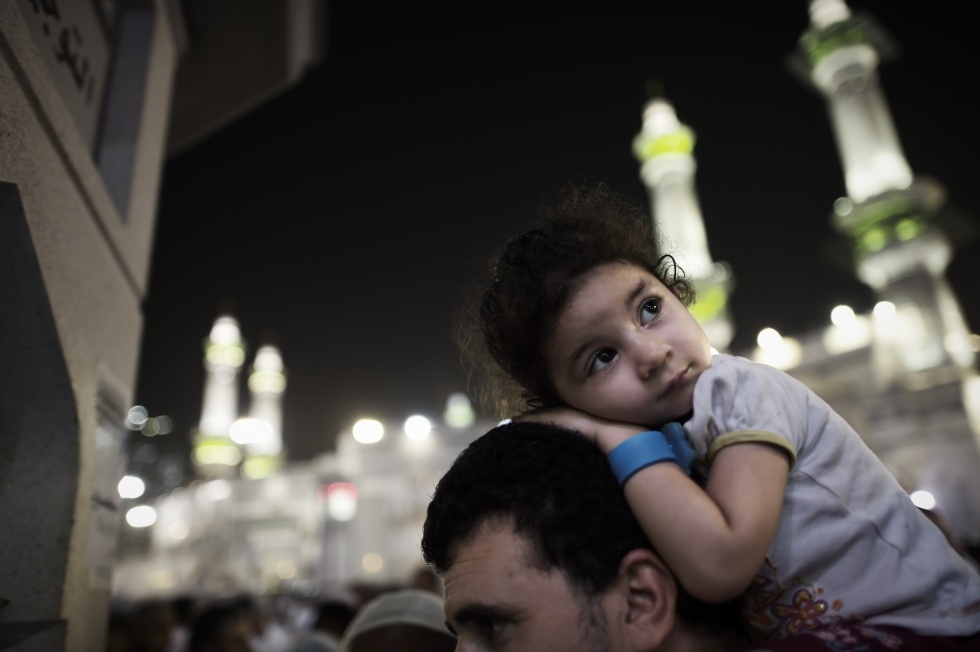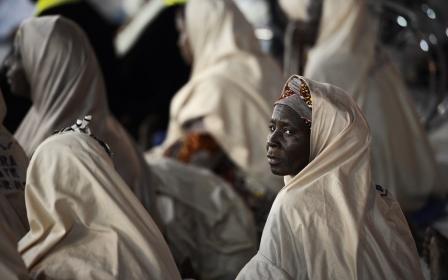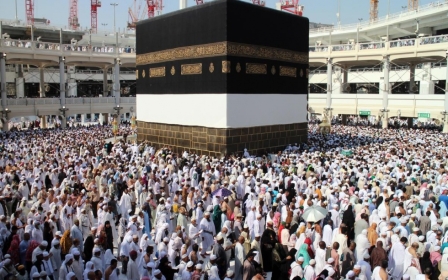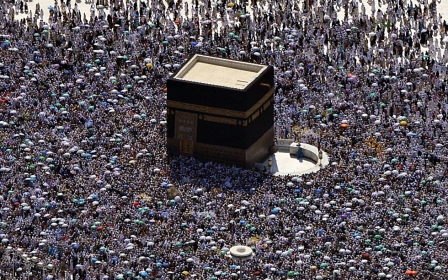Wounded Syrian is pushed in wheelbarrow to Hajj

Wounded Syrian rebel Abdulkarim al-Naseef had to be pushed in a wheelbarrow during his long journey to Saudi Arabia, where he will perform the Hajj and hopes to start a new life.
Proudly showing off his artificial iron leg, and with a rebel scarf draped over his shoulders, Naseef said he had journeyed to Saudi Arabia not only as a Hajj pilgrim but also in the hopes of receiving treatment.
Along the road from Syria to Turkey the tall, bearded ex-fighter and former businessman had to be pushed in the wheelbarrow part of the way. He waited hours until he entered Turkey, travelling on from there to Saudi Arabia.
Naseef is among some 12,000 Syrians performing Hajj this year, around half of them from inside the country, according to Mohammed Ismael Ahmed, who heads a group of 800 pilgrims.
They are among close to 1.4 million foreigners who arrived for one of the world's largest Muslim gatherings, which began on Thursday.
"I came to perform Hajj and to treat this leg," said Naseef, 36, who is from the outskirts of Aleppo.
He lifted his white robe to reveal that not only is he wearing a prosthesis, but his other leg is also badly injured.
"Up to 10 centimetres of the tendon and nerve in this leg have been torn," he said. "I tried by all means to come to Saudi Arabia in my attempt not to lose both legs... but only managed to arrive through pilgrimage."
Despite the pain he still suffers, Naseef spoke with pride of his time with Syria's rebels.
Naseef joined the Syrian uprising that began in 2011 against President Bashar al-Assad's rule and which has so far cost more than 191,000 lives.
"I took part in several battles and was wounded on August 30, 2012," he said.
"I regret nothing," he said. "Even if both my legs were amputated.
"We have achieved something... for the coming generations."
Nowhere else to go
Fellow pilgrim Ahmed Orabi, 45, an engineer from Hama, fled with his family to Turkey after regime troops bombed his home in Syria.
"We reached Greece by boat where we spent a month trying to travel to Sweden or any other safe country but failed. We then sold everything we had left and returned to Turkey," said the father of seven.
To renew his Turkish residency would have cost more than $3,000 for every member of his family, he said.
"I don't have this," he said.
With what little money they had left, "we applied for Hajj here in the kingdom, where we arrived hoping they would receive us and allow us to stay with our children as we have nowhere else to go."
The pilgrims said other neighbouring countries have not been able to receive them.
According to the United Nations High Commissioner for Refugees (UNHCR), an estimated 2.5 million Syrians have fled their country's conflict to Turkey, Lebanon, Jordan, Iraq and Egypt.
The Syrian pilgrims applied through the opposition Syrian National Coalition to perform Hajj at a cost of around $2,000 per person.
"The major obstacle Syrian pilgrims had to face was obtaining travel documents," said Orabi, appealing to Arab governments to recognise documents issued by the Syrian opposition.
For Mohammed Ismael Ahmed, crossing the border to Turkey was the most difficult part of the journey.
"Some of the pilgrims were elderly or disabled and there was no means of transport to take them from one crossing to the other. They had to walk," he said.
Although the oil-rich Gulf states have sent aid to Syrian refugees abroad, they do not themselves take in refugees.
Still, a desperate Orabi is hanging on to the last hope left for his family.
"I don't mind living in the middle of the desert here. I only need a safe country."
New MEE newsletter: Jerusalem Dispatch
Sign up to get the latest insights and analysis on Israel-Palestine, alongside Turkey Unpacked and other MEE newsletters
Middle East Eye delivers independent and unrivalled coverage and analysis of the Middle East, North Africa and beyond. To learn more about republishing this content and the associated fees, please fill out this form. More about MEE can be found here.




